- Home
- Timothy Zahn
Star Wars_Thrawn Page 19
Star Wars_Thrawn Read online
Page 19
“And the finances themselves?”
“Again, nothing obvious. If something’s going on, it’s being very well hidden.”
“Interesting,” Thrawn murmured. “I trust you will continue your investigation.” He gestured toward the datapad. “In the meantime, we have these vulture droids to consider. You say they are being purchased?”
“Yes,” Eli said. “And the buy-up’s not just local, either. You can’t get numbers rising this fast unless all the surrounding sectors are being drained, too.”
“That was my assumption, as well,” Thrawn agreed. “And with no other obvious value to the droids, the likely conclusion is that the buyer intends to use them.”
“Not much a vulture droid can be used for except to shoot at other people,” Eli pointed out. “And their tech has to be at least a couple of decades old. I was under the impression that we’d pretty much learned how to deal with them.”
“It is possible we have forgotten,” Thrawn pointed out. “As weaponry advances, the techniques used against obsolete ordnance may be neglected or lost.”
“Possibly,” Eli said. “Takes a pretty confident person to think he can beat modern turbolasers with blaster cannons, though.”
Thrawn shrugged. “I could.”
“Right, but you’re on our side,” Eli said drily. “Who else could?”
Thrawn raised his eyebrows in silent question. Eli frowned…“Let me guess. Nightswan?”
“The Rodian who sold me the vulture droid part had an order for more such parts under the name Nightswan,” Thrawn confirmed.
“The merchant let you see his order requests?”
“He was unaware that I did so.”
“Ah,” Eli said, peering closely at him. Ever since Uba and the lost tibanna, Thrawn had had a subtle but strong focus—Eli refused to call it an obsession, even in the privacy of his own mind—toward Nightswan. Over the past year Thrawn had been summoned back to Coruscant four times to consult with the Emperor, and during each of those visits he’d made time to visit Colonel Yularen for a private and unofficial update on Nightswan’s activities. “I don’t suppose there could be a second Nightswan out there?”
“That is always possible,” Thrawn said. “But consider. We know our Nightswan specializes in clever strategies. We know he has seen firsthand the effectiveness of old technology and weapons that no one expects to face. And along with the name, the request specified that payment would be in iridium.”
“So you’re also tagging him for the operation we just took down?” Eli shook his head. “I don’t know. Nightswan is smart. These guys are idiots.”
“Indeed they are,” Thrawn agreed. “Which is why I asked one of them about the mollusk meat as they were being locked away. He admitted that the man who set up the scheme specifically told them to disperse the meat over their entire path. They told him that was too much trouble.”
“Interesting,” Eli said. “Still doesn’t qualify as proof.”
“True, but it bears further examination,” Thrawn said. “I will inform the commander of my thoughts and speculations. Meanwhile, perhaps you could track the smuggled metals and look for a connection to vulture droid purchases.”
“I’ll do what I can,” Eli said. “But lines like that are pretty easy to cover up.”
“I trust your abilities,” Thrawn said. “We must also watch for reports of trouble on the planet Umbara.”
“Why Umbara?”
“The smugglers remembered that the man who instructed them mentioned that world.”
“Sounds like misdirection,” Eli warned “Umbara was one of the major Separatist planets. The locals fought pretty hard, and got stomped pretty solidly. Hard to believe they’d want to go through that again.”
“Agreed,” Thrawn said. “But we will watch for reports from there just the same.” His expression hardened. “Nightswan escaped the Empire once. I’m sure the Empire would appreciate it if we remedied that failure.”
—
Art.
For some it was a measure of culture. For others it was a measure of wealth. For most it was a matter of simple enjoyment.
For Thrawn, it was an invaluable tool.
The Thunder Wasp’s computer library had only a limited catalog of art reproductions, and only three pieces of those were from Umbara. Fortunately, Thrawn had spent the past three years building up an extensive collection of data cards that rivaled the best art archives in the Empire.
He sat in his cabin, surrounded by holograms of sculptures, flats, mobiles, kinetics, interactives, and the other art forms the Umbarans had developed and explored over the centuries. Of particular interest were the subtle changes that had taken place between works created before and after the Clone Wars.
The other Chiss didn’t understand. They never had. He’d been asked innumerable times how he was able to build such detailed tactical knowledge from such obscure and insignificant ingredients.
The question carried its own answer. To Thrawn, nothing in a species’ art was obscure or insignificant. All the threads tied together; all the brushstrokes spoke to him; all the light curves told the story of their creator.
Artists were individuals. But they were also products of their culture and history and philosophy. The weave of artist and culture was evident to the discerning eye. The fundamental pattern of a species could be sketched, then drawn, then fully fleshed out. Most important of all, the relationships among art, culture, and military doctrine could be deduced.
And what could be deduced could be countered.
Distantly, Thrawn became aware that a new image had entered the pattern of Umbaran art flowing around him. Reluctantly, he withdrew his mind from contemplation and reflection and narrowed his focus.
Ensign Vanto had entered his cabin.
“Ensign,” Thrawn said. “You disturb my solitude.”
“You worried us,” Vanto countered. His expression is concerned. “Commander Cheno has been trying to reach you by intercom for the past ten minutes. We’ve entered the Umbara system, and he wants you on the bridge.”
“My apologies,” Thrawn said. “I was more focused than I realized.”
“Sure,” Vanto said. He looks around at the artwork. “The commander thought you might have become ill. What’s all this?”
“Art of the Umbaran people,” Thrawn said. “Has the rest of the task force arrived?”
“Our Star Destroyer has,” Vanto said. He continues to study the artwork with interest. “The ISD Foremost, Admiral Carlou Gendling commanding. He has two of his four corvettes with him, but he sent the other two and his light cruiser off to investigate a problem that just cropped up in another system.”
“Is Admiral Gendling planning to wait for the other ships?”
“He seems confident that we can handle the matter without their help,” Vanto said. “I’m assuming that once we reach orbit, he’ll order the dissidents to proceed to the nearest garrison or police station and surrender themselves and their weapons. Commander Cheno wants you on the bridge just in case they don’t.”
“Understood,” Thrawn said. “Please convey my apologies to the commander, and tell him I shall join him momentarily.”
He reached the bridge to find the combat crew assembled and at their proper stations. All indicators showed the Thunder Wasp at full battle readiness. “Reporting for duty, Commander,” he said. “My apologies for the delay.”
“No problem,” Cheno said. He peers closely at Thrawn’s face. “Are you all right? I thought you might have been taken ill.”
“I am well,” Thrawn assured him. “I understand Admiral Gendling is preparing to deliver an ultimatum?”
“Yes,” Cheno said. His expression indicates apprehension. “I advised him to wait for the rest of the task force, but Gendling’s an impatient sort.” He steps closer to Thrawn and lowers the volume of his voice. “He also has a somewhat overinflated view of himself and his capabilities,” he added. “Though that’s just my opinion.”
“Not simply your opinion, sir,” Thrawn said. “The overall pattern of his career validates your assessment.”
“Really?” Cheno said. He is surprised. “You’ve studied his career?”
“I have given it a cursory examination.”
“Really. Have you made the same cursory examination of my career?”
“You have not been offered the same opportunities as Admiral Gendling,” Thrawn said. “Without such, there is little chance for you to prove your abilities.”
“Even if I could?” Cheno said. His expression is wry and understanding. “No, don’t try to spare my feelings. You’re a brilliant officer. I’m an adequate one. You’ll rise through the ranks. I’ll end my career quietly.” He turned back to the forward viewport. “But maybe we’ll be lucky. Maybe we’ll have to fight a battle, and you’ll win it for me. At least the Thunder Wasp will finally get some recognition.” He nodded aft. “The starboard turbolaser targeting system has been giving us some problems. Go see if Ensign Vanto needs assistance checking the diagnostics, if you would.”
“Yes, sir.”
Vanto was standing by the weapons diagnostic station when Thrawn arrived. “Ensign,” Thrawn greeted him. “Report on the starboard targeting system.”
“They just ran a diagnostic,” Vanto said. “No obvious problem, but the thing’s been twitchy so we’re running it again. Did I hear Commander Cheno hoping the Umbarans take a shot at us?”
“You did,” Thrawn confirmed. “But his hope will likely remain unfulfilled. The Umbarans will not attack.”
“Really, sir?” Vanto said, his tone one of surprise. “Because they attacked just fine during the Clone Wars.”
“But only when they perceived themselves as having an advantage in numbers or position or command capability,” Thrawn said. “Those factors do not exist here. Furthermore, their homeworld stands to absorb severe damage from orbital bombardment if they initiate combat.”
“Ah,” Vanto said. “Too bad for Commander Cheno, I guess.”
On the main comm display, Admiral Gendling’s face appeared. “People of Umbara,” he said. His voice is strong and proud, carrying both challenge and contempt. “Or perhaps I should say, insurgents of Umbara. This is Admiral Carlou Gendling of the Imperial Star Destroyer Foremost. You have engaged in sedition and gathered weapons in defiance of Imperial law. In the name of the Emperor, I order you to turn in yourselves and your weapons to the nearest military garrison or police station. Your leaders will be charged according to the severity of their crimes; those who simply followed out of ignorance or family ties will be permitted to return to their homes and lives without punishment. If you do not comply, your world will face the full destructive force that an Imperial Star Destroyer can bring to bear. I give you one hour.”
“And that’s that,” Vanto said. There is a level of regret in his voice. As Commander Cheno wishes to test himself in full combat, so, too, does Vanto. “He’ll probably end up sending in a few stormtrooper squads to keep order and make sure the troublemakers remember what’s sitting over their heads. But for us—”
“Incoming!” Senior Lieutenant Hammerly called from the sensor station. Her voice holds surprise and tension. “Numerous craft, incoming from behind the outer moon. Two hundred—three hundred—four hundred. Four hundred craft incoming on our starboard-aft quarter, moving on attack vectors.
“Identification: vulture droids.”
No battle plan can anticipate all contingencies. There are always unexpected factors, including those stemming from the opponent’s initiative. A battle thus becomes a balance between plan and improvisation, between intellect and reflex, between error and correction.
It is a narrow line. But it is a line one’s opponent must also walk. For all the balance of experience and cleverness, it is often the warrior who acts quickest who will prevail.
—
“All ships disperse,” Admiral Gendling’s voice boomed across the bridge. “One-eighty-degree turn. Prepare for combat.”
Eli snarled under his breath. What did the overblown excuse for an admiral think they’d been doing?
But one of the Thunder Wasp’s officers, at least, didn’t seem to hear any implied slight in the order. Commander Cheno was standing stiff and tall on the command walkway, his head held high, his shoulders back. This was his chance—maybe his last chance—to shine in combat. “Turbolasers, stand ready,” he called. “Helm, bring us aft and above the Foremost. Gunners, your job is to intercept and destroy enemy fighters targeting the Foremost’s dorsal surfaces.”
A chorus of acknowledgments came from the crew pits. “Looks like he got his wish after all, sir,” Eli murmured to Thrawn.
“No,” Thrawn said.
“Excuse me?”
“He wished to meet the Umbarans in combat. But this attack is not theirs.”
“It’s coming from an Umbaran moon,” Eli pointed out, trying to filter the sarcasm out of his voice. Thrawn’s unshakable confidence still sometimes got to him. “The whole system is full of Umbarans. The Umbaran leaders aren’t screaming to Gendling that it’s not them and please don’t shoot.”
“Because they do not yet see themselves in a position of weakness,” Thrawn said. “They are watching the attack to see if we are weakened sufficiently for them to engage us.”
Eli shook his head. “How do you know all this?”
“All weapons: Fire!” Cheno called.
The Thunder Wasp’s bridge lit up with flickers of green light as turbolaser bolts shot outward toward the incoming fighters. A few of the vulture droids were hit, shattering instantly into brilliant explosions of smoke and debris. But most of them avoided the cruiser’s attack with ease.
“Fire again!” Cheno bit out. “And this time, hit them.”
“They’re too small, sir,” Weapons Officer Osgoode called back. “We’re going to have to wait until they’re closer.”
Before Cheno could answer, the vulture droids opened up with their own volley of return fire.
“Deflectors!” Cheno snapped. His voice, Eli noted, was starting to sound strained.
Small wonder. Theoretically, vulture droids should be no match for Imperial ships-of-the-line. But there were a hell of a lot of them.
The cruiser’s gunners tried their best. But they could do little against the incoming swarm. The smaller craft were too fast, too distant, and too nimble. The Thunder Wasp kept firing, but only a few of the bolts found their targets.
Meanwhile, the vulture droids’ own return fire was tearing into the Thunder Wasp’s hull, penetrating gaps in overloaded shields to destroy sensors, weapons emplacements, and a small but rapidly growing number of outer hull plates.
Eli looked at the tactical display. So far the Foremost seemed to be holding its own, but the two Raider-class corvettes were being pummeled even harder than the Thunder Wasp.
And still Commander Cheno stood on the command walkway. Unmoving. Silent.
In over his head.
Helpless.
Eli stole a look at Thrawn. The Chiss was also standing motionless, his face as impassive as Cheno’s.
But there was something about him that sent a shiver up Eli’s back. Thrawn saw something. Somewhere in all that chaos and destruction, he saw something.
Abruptly, he seemed to come to a decision. “Who here has had combat experience with vulture droids?” he called.
“I have, sir,” Hammerly called back, raising her hand.
“Turbolaser station one, Lieutenant,” Thrawn ordered.
“Commander?” Hammerly asked, looking at Cheno for confirmation.
“Go,” Cheno ordered her, his voice grim. “Secondary Sensor Officer—”
“I will take the chief sensor officer’s position,” Thrawn interrupted. “Ensign Vanto, with me.”
A few seconds later Thrawn was seated at Hammerly’s console. Eli stood behind him, trying very hard not to look as nervous as he felt. Bad enough that they were being taken apart by an
attacking force they couldn’t stop. But by throwing orders around without Cheno’s approval, Thrawn had effectively usurped command. Eli’s mind flashed back to Captain Rossi and Admiral Wiskovis, and their reactions to Thrawn’s casual disregard for chain-of-command protocol. “Now what?” he asked in a low voice. “Did you already know Hammerly had been in combat?”
“I needed a reason to take her station,” Thrawn replied quietly. “I have studied vulture droids, Ensign. They do not normally fight this effectively.”
Eli looked at the display. The fighters had closed with the four Imperial ships and were swarming around them, pouring in continual fire while still largely managing to dodge the defenders’ counterattack. “Well, they weren’t designed to be very smart on their own,” he pointed out. “A few simple pre-programmed maneuvers and combat patterns, throw in huge numbers to overwhelm their targets—”
“There!” Thrawn jabbed a finger. “That group of four. Did you see it?”
Eli frowned. “No.”
“Their drive emissions suddenly increased, allowing them to speed up,” Thrawn said. “But there was no reason for extra speed. They were already evading our attack quite effectively.”
“Okay,” Eli said, frowning harder. The group Thrawn had tagged were weaving through the turbolaser blasts and coming around for another volley—
He stiffened. There it was. “I saw it.”
“Good,” Thrawn said. “Note how their combat style also changes. Instead of firing with deliberation at vulnerable spots, they fire indiscriminately whether the target point is worth shooting at or not.”
“Got it,” Eli said. The shifts in combat style were subtle, but now that he knew what to look for they were quite visible. “So what does it mean?”
“You said yourself that these droids are not clever,” Thrawn said. “Their creators assumed a given fighter would not survive long, and so programmed them to be swarming weapons.”

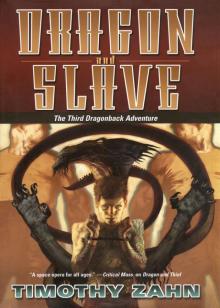 Dragonback 03 Dragon and Slave
Dragonback 03 Dragon and Slave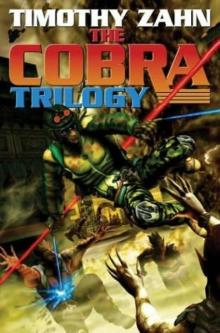 Cobra Bargain
Cobra Bargain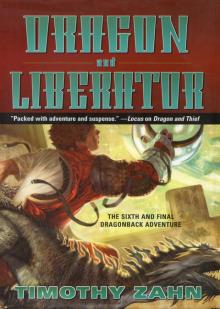 Dragonback 06 Dragon and Liberator
Dragonback 06 Dragon and Liberator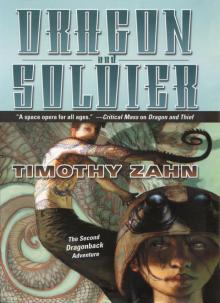 Dragonback 02 Dragon and Soldier
Dragonback 02 Dragon and Soldier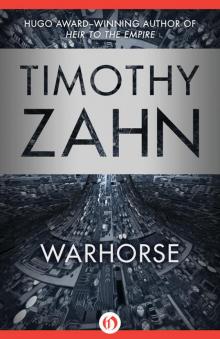 Warhorse
Warhorse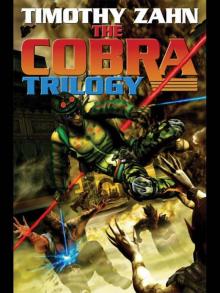 The Cobra Trilogy
The Cobra Trilogy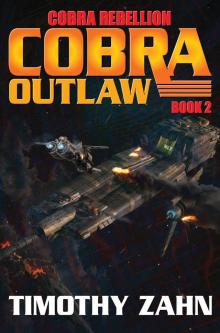 Cobra Outlaw - eARC
Cobra Outlaw - eARC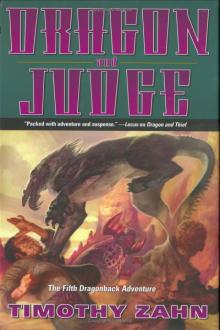 Dragon and Judge
Dragon and Judge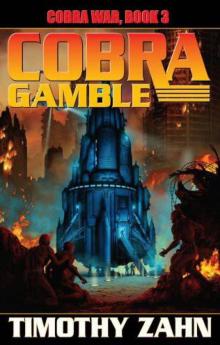 Cobra Gamble
Cobra Gamble The Domino Pattern
The Domino Pattern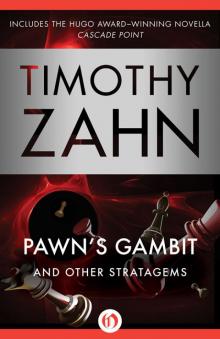 Pawn's Gambit: And Other Stratagems
Pawn's Gambit: And Other Stratagems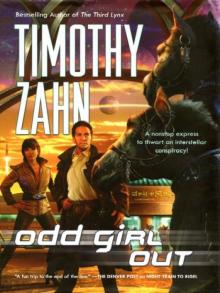 Odd Girl Out
Odd Girl Out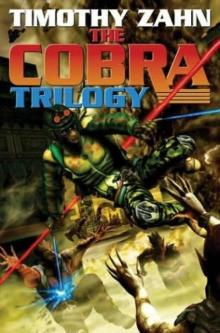 Cobra Strike
Cobra Strike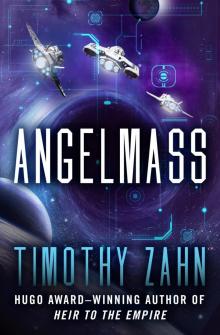 Angelmass
Angelmass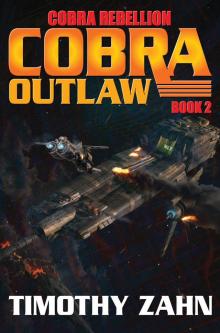 Cobra Outlaw
Cobra Outlaw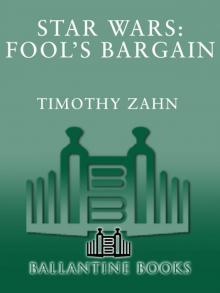 Heir to the Empire
Heir to the Empire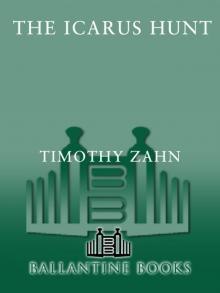 The Icarus Hunt
The Icarus Hunt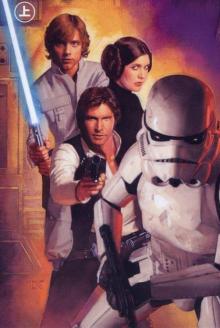 Star Wars - Thrawn Trilogy - The Last Command 03
Star Wars - Thrawn Trilogy - The Last Command 03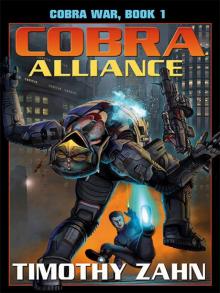 Cobra Alliance
Cobra Alliance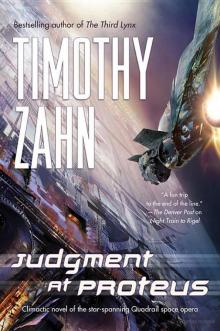 Judgment at Proteus
Judgment at Proteus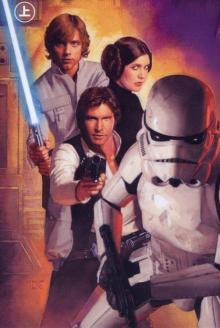 Star Wars - Thrawn Trilogy - Dark Force Rising 02
Star Wars - Thrawn Trilogy - Dark Force Rising 02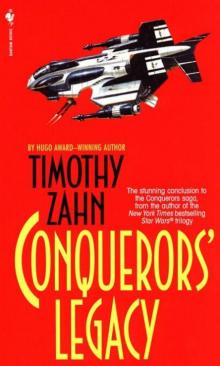 Conquerors' Legacy
Conquerors' Legacy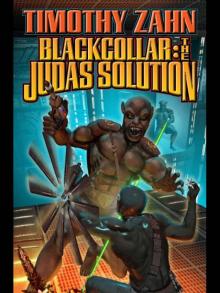 The Judas Solution
The Judas Solution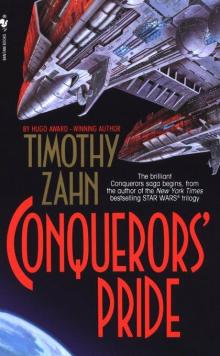 Conquerors' Pride
Conquerors' Pride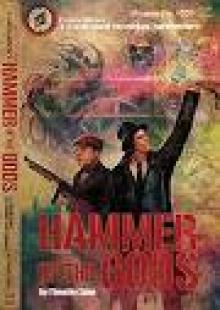 Hammer of the Gods
Hammer of the Gods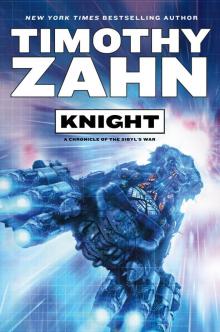 Knight
Knight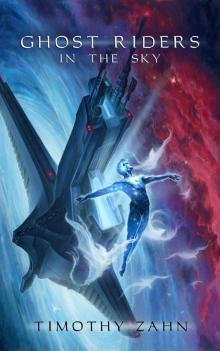 Ghost Riders in the Sky
Ghost Riders in the Sky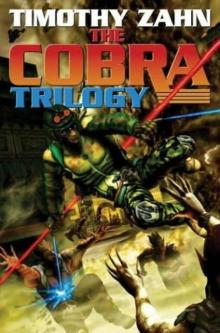 Cobra
Cobra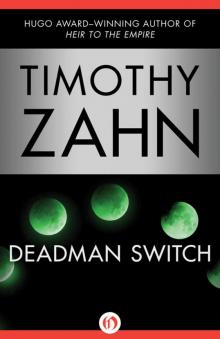 Deadman Switch
Deadman Switch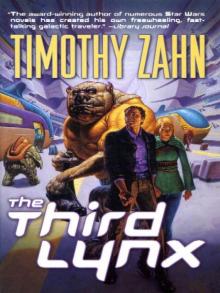 The Third Lynx
The Third Lynx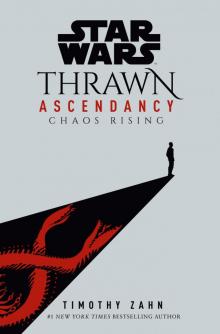 Chaos Rising
Chaos Rising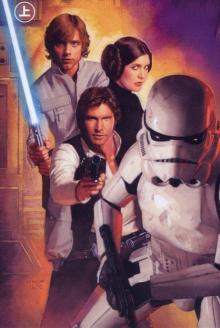 Star Wars - Thrawn Trilogy - Heir to the Empire 01
Star Wars - Thrawn Trilogy - Heir to the Empire 01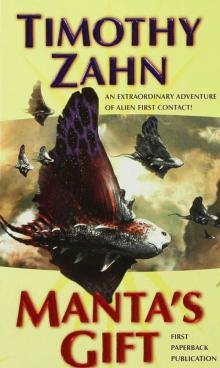 Manta's Gift
Manta's Gift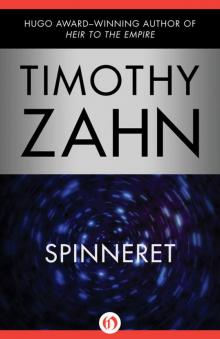 Spinneret
Spinneret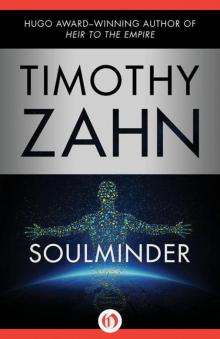 Soulminder
Soulminder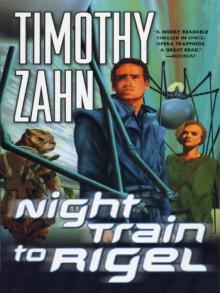 Night Train to Rigel
Night Train to Rigel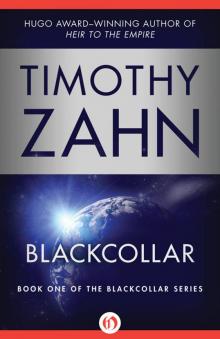 Blackcollar
Blackcollar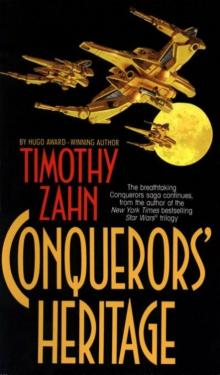 Conquerors' Heritage
Conquerors' Heritage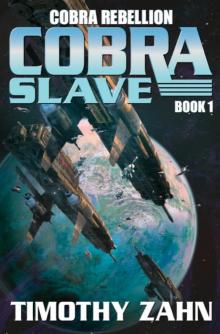 Cobra Slave
Cobra Slave A Coming of Age
A Coming of Age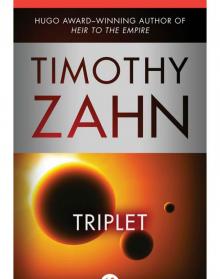 Triplet
Triplet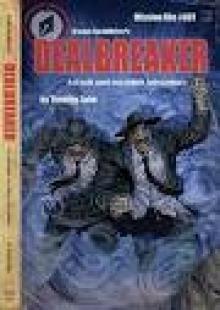 Dealbreaker
Dealbreaker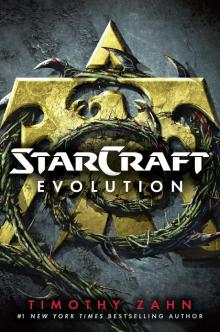 StarCraft
StarCraft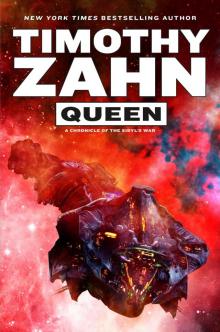 Queen
Queen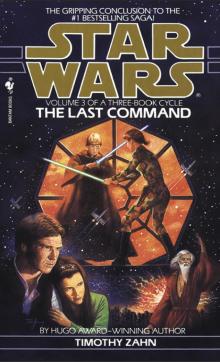 The Last Command
The Last Command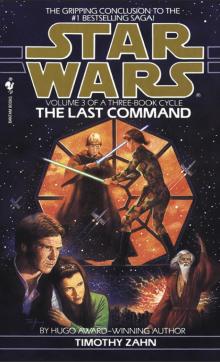 Star Wars: The Last Command
Star Wars: The Last Command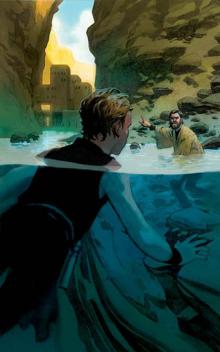 Star Wars Clone Wars: Changing Seasons
Star Wars Clone Wars: Changing Seasons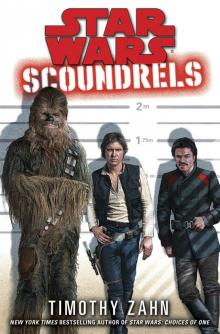 Scoundrels
Scoundrels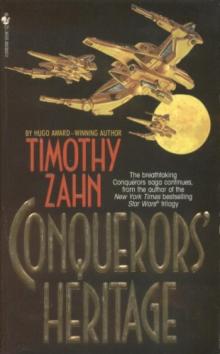 Conquerors 2 - Conquerors' Heritage
Conquerors 2 - Conquerors' Heritage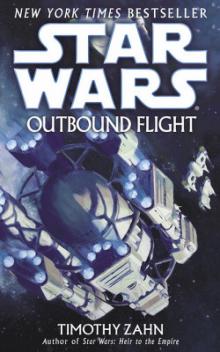 Outbound Flight (звёздные войны)
Outbound Flight (звёздные войны)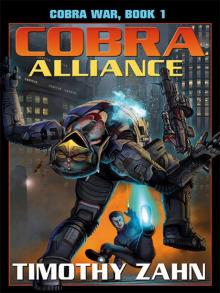 Cobra Alliance-Cobra War Book 1
Cobra Alliance-Cobra War Book 1 Hero of Cartao 2. Hero's Rise
Hero of Cartao 2. Hero's Rise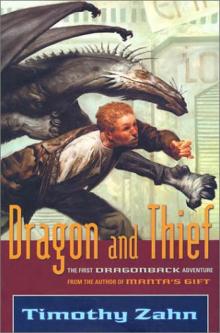 Dragon and Thief d-1
Dragon and Thief d-1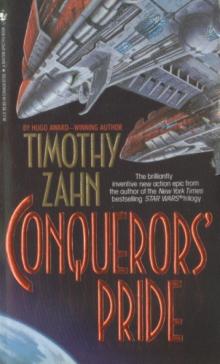 Conquerors 1 - Conquerors' Pride
Conquerors 1 - Conquerors' Pride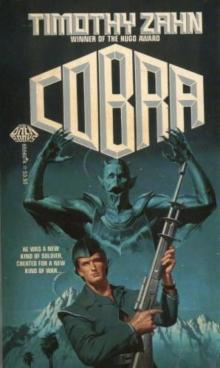 Cobra Alliance cw-1
Cobra Alliance cw-1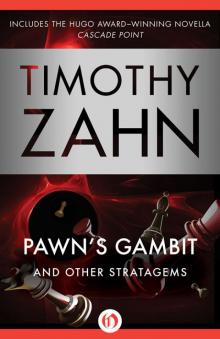 Pawn’s Gambit
Pawn’s Gambit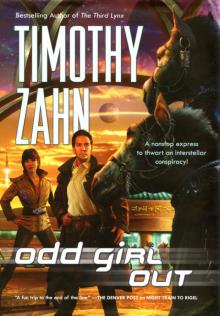 Odd Girl Out q-3
Odd Girl Out q-3 Dragon and Slave
Dragon and Slave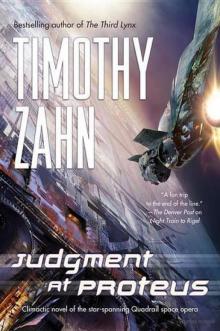 Judgment at Proteus q-5
Judgment at Proteus q-5 Night Train to Rigel (Quadrail Book 1)
Night Train to Rigel (Quadrail Book 1)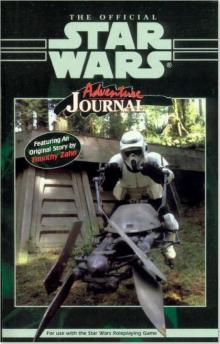 Star Wars: Adventure Journal 11: Command Decision
Star Wars: Adventure Journal 11: Command Decision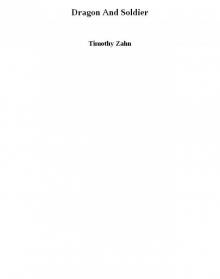 Dragon And Soldier
Dragon And Soldier Hero of Cartao 3. Hero's End
Hero of Cartao 3. Hero's End For Love of Amanda
For Love of Amanda Distant Friends and Other Stories
Distant Friends and Other Stories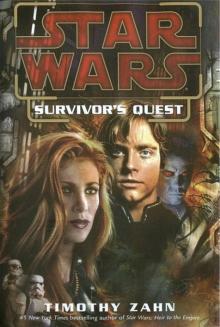 Star Wars: Survivor's Quest
Star Wars: Survivor's Quest Hero of Cartao 1. Hero's call
Hero of Cartao 1. Hero's call The Domino Pattern (Quadrail Book 4)
The Domino Pattern (Quadrail Book 4)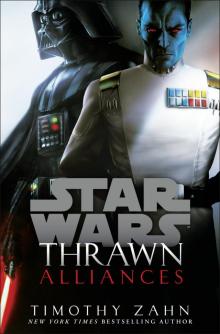 Thrawn_Alliances_Star Wars
Thrawn_Alliances_Star Wars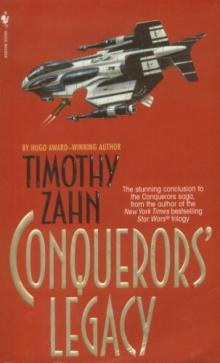 Conquerors 3 - Conquerors' Legacy
Conquerors 3 - Conquerors' Legacy The Blackcollar Series
The Blackcollar Series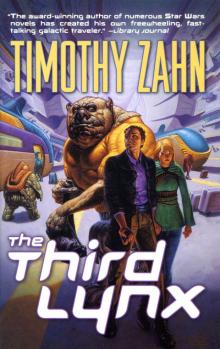 The Third Lynx q-2
The Third Lynx q-2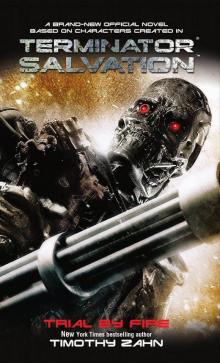 Terminator Salvation: Trial by Fire
Terminator Salvation: Trial by Fire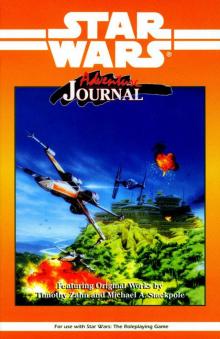 Star Wars - Mist Encounter
Star Wars - Mist Encounter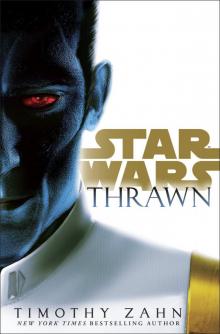 Thrawn
Thrawn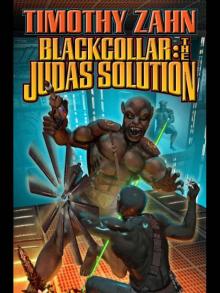 Blackcollar-The Judas Solution
Blackcollar-The Judas Solution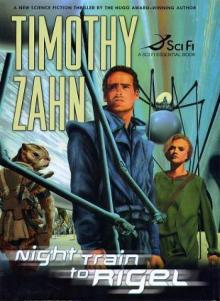 Night Train to Rigel q-1
Night Train to Rigel q-1 Cascade Point
Cascade Point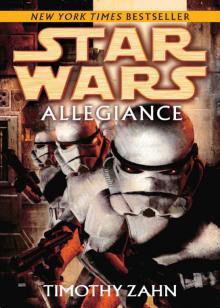 Allegiance
Allegiance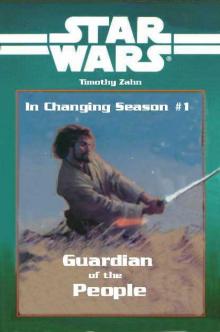 Star Wars - In Changing Season 1 - Guardian of the People
Star Wars - In Changing Season 1 - Guardian of the People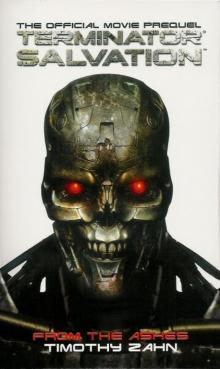 Terminator Salvation - From the Ashes ts-2
Terminator Salvation - From the Ashes ts-2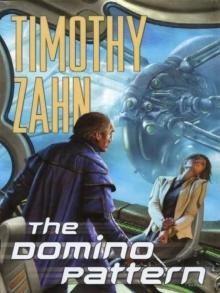 The Domino Pattern q-4
The Domino Pattern q-4 The Big Picture
The Big Picture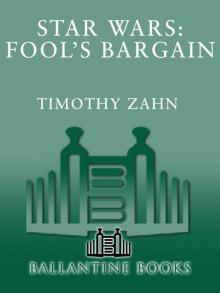 Star Wars: Fool's Bargain
Star Wars: Fool's Bargain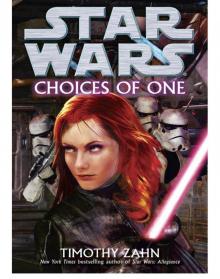 Star Wars: Choices of One
Star Wars: Choices of One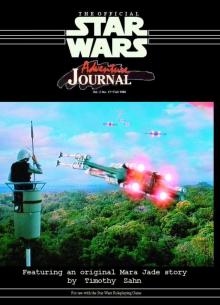 Star Wars - Jade Solitaire - Unpublished
Star Wars - Jade Solitaire - Unpublished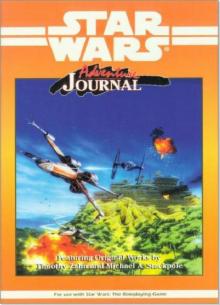 Star Wars: Adventure Journal: Mist Encounter
Star Wars: Adventure Journal: Mist Encounter Outbound Flight
Outbound Flight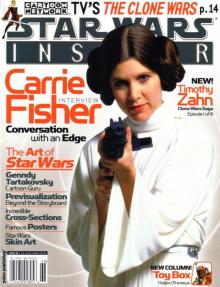 Star Wars - The Hero of Cartao - Part 1 - Hero's Call
Star Wars - The Hero of Cartao - Part 1 - Hero's Call Thrawn 1 - Specter of the Past
Thrawn 1 - Specter of the Past Survivor's Quest
Survivor's Quest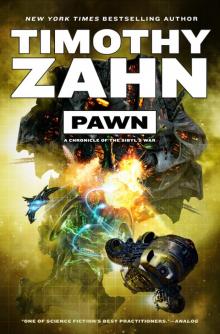 Pawn
Pawn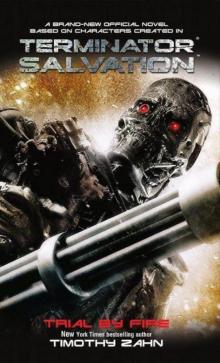 Trial By Fire ts-4
Trial By Fire ts-4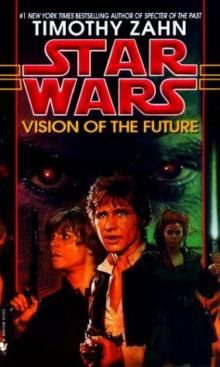 Vision of the future swhot-2
Vision of the future swhot-2 Star Song and Other Stories
Star Song and Other Stories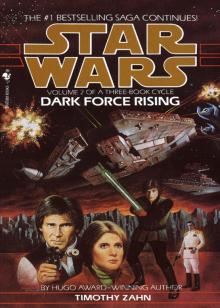 Dark Force Rising
Dark Force Rising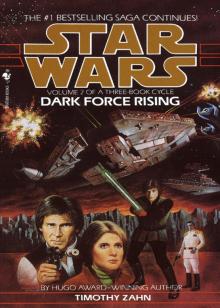 Star Wars: Dark Force Rising
Star Wars: Dark Force Rising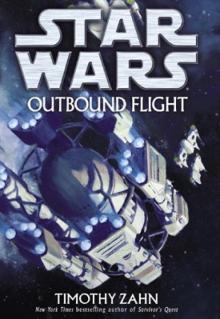 Star Wars - Outbound Flight
Star Wars - Outbound Flight Blackcollar: The Judas Solution
Blackcollar: The Judas Solution The Green And The Gray
The Green And The Gray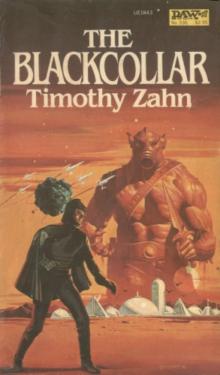 Blackcollar: The Blackcollar
Blackcollar: The Blackcollar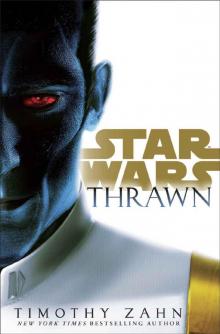 Star Wars_Thrawn
Star Wars_Thrawn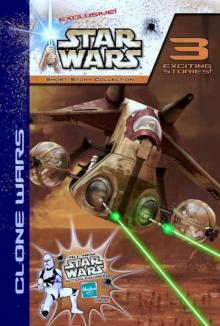 Star Wars - Duel
Star Wars - Duel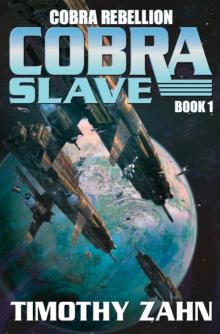 Cobra Slave-eARC
Cobra Slave-eARC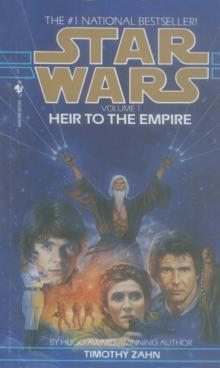 Star Wars: Heir to the Empire
Star Wars: Heir to the Empire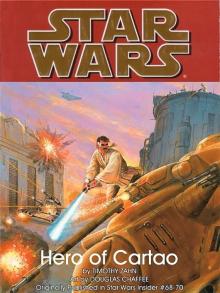 Star Wars: Clone Wars Stories: Hero of Cartao
Star Wars: Clone Wars Stories: Hero of Cartao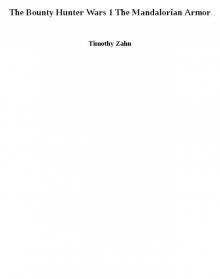 The Bounty Hunter Wars 1 The Mandalorian Armor
The Bounty Hunter Wars 1 The Mandalorian Armor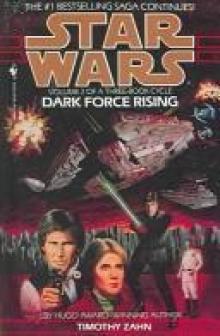 Dark Force Rising (Star Wars) swtt-2
Dark Force Rising (Star Wars) swtt-2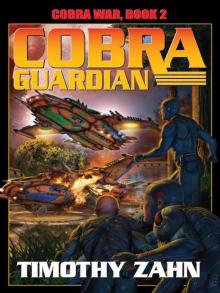 Cobra Guardian: Cobra War: Book Two
Cobra Guardian: Cobra War: Book Two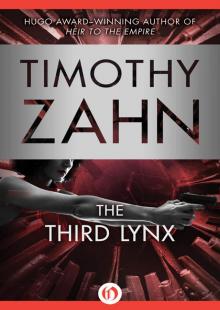 The Third Lynx (Quadrail Book 2)
The Third Lynx (Quadrail Book 2) Time Bomb And Zahndry Others
Time Bomb And Zahndry Others Blackcollar: The Backlash Mission
Blackcollar: The Backlash Mission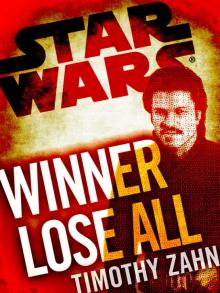 Winner Lose All--A Lando Calrissian Tale: Star Wars
Winner Lose All--A Lando Calrissian Tale: Star Wars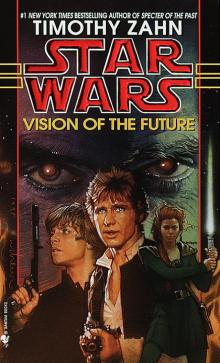 Star Wars: The Hand of Thrawn II: Vision of the Future
Star Wars: The Hand of Thrawn II: Vision of the Future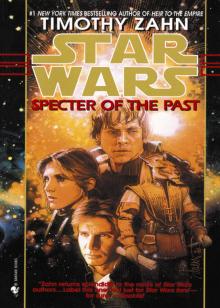 Specter of the Past
Specter of the Past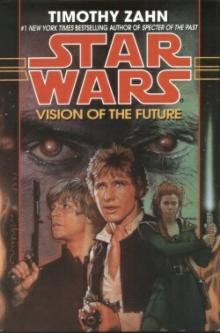 Star Wars - Hand of Thrawn 2 - Vision of the Future
Star Wars - Hand of Thrawn 2 - Vision of the Future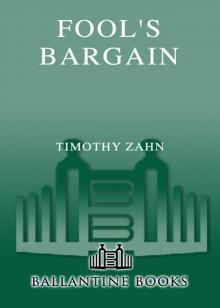 Fool's Bargain
Fool's Bargain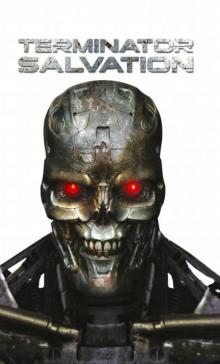 From the Ashes
From the Ashes Coming of Age
Coming of Age